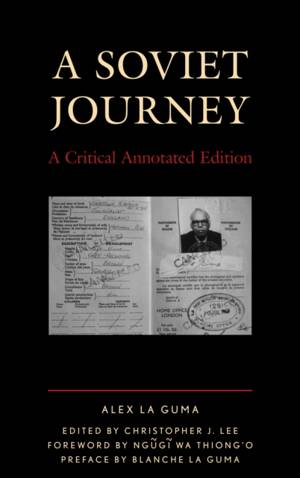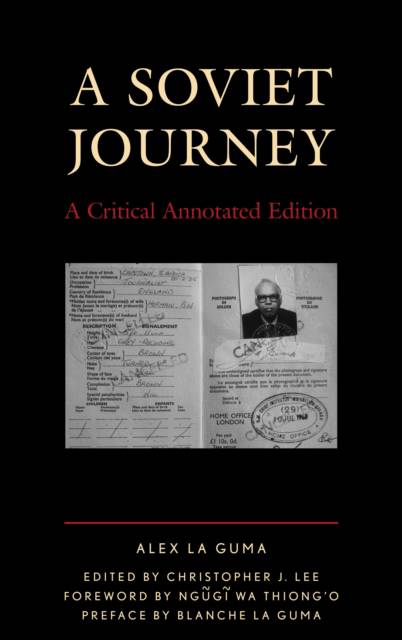
- Afhalen na 1 uur in een winkel met voorraad
- Gratis thuislevering in België vanaf € 30
- Ruim aanbod met 7 miljoen producten
- Afhalen na 1 uur in een winkel met voorraad
- Gratis thuislevering in België vanaf € 30
- Ruim aanbod met 7 miljoen producten
Zoeken
Omschrijving
In 1978, the South African activist and novelist Alex La Guma (1925-1985) published A Soviet Journey, a memoir of his travels in the Soviet Union. Today it stands as one of the longest and most substantive first-hand accounts of the USSR by an African writer. La Guma's book is consequently a rare and important document of the anti-apartheid struggle and the Cold War period, depicting the Soviet model from an African perspective and the specific meaning it held for those envisioning a future South Africa. For many members of the African National Congress and the South African Communist Party, the Soviet Union represented a political system that had achieved political and economic justice through socialism--a point of view that has since been lost with the collapse of the USSR and the end of the Cold War. This new edition of A Soviet Journey--the first since 1978--restores this vision to the historical record, highlighting how activist-intellectuals like La Guma looked to the Soviet Union as a paradigm of self-determination, decolonization, and postcolonial development. The introduction by Christopher J. Lee discusses these elements of La Guma's text, in addition to situating La Guma more broadly within the intercontinental spaces of the Black Atlantic and an emergent Third World. Presenting a more expansive view of African literature and its global intellectual engagements, A Soviet Journey will be of interest to readers of African fiction and non-fiction, South African history, postcolonial Cold War studies, and radical political thought.
Specificaties
Betrokkenen
- Auteur(s):
- Uitgeverij:
Inhoud
- Aantal bladzijden:
- 284
- Taal:
- Engels
- Reeks:
Eigenschappen
- Productcode (EAN):
- 9781498536042
- Verschijningsdatum:
- 23/05/2019
- Uitvoering:
- Paperback
- Formaat:
- Trade paperback (VS)
- Afmetingen:
- 152 mm x 229 mm
- Gewicht:
- 417 g

Alleen bij Standaard Boekhandel
+ 176 punten op je klantenkaart van Standaard Boekhandel
Beoordelingen
We publiceren alleen reviews die voldoen aan de voorwaarden voor reviews. Bekijk onze voorwaarden voor reviews.







